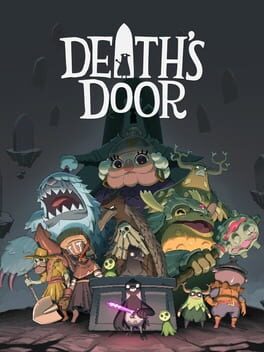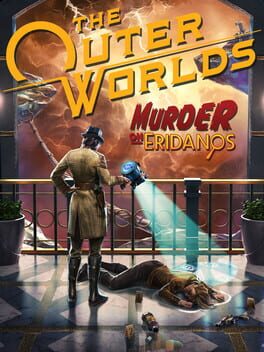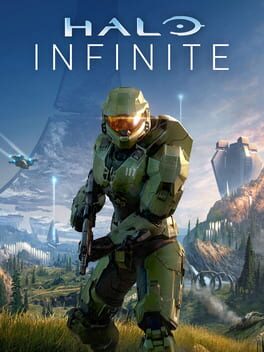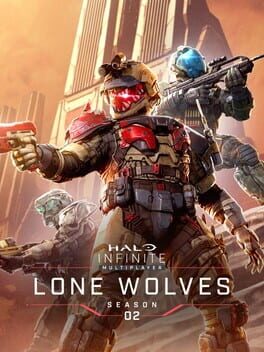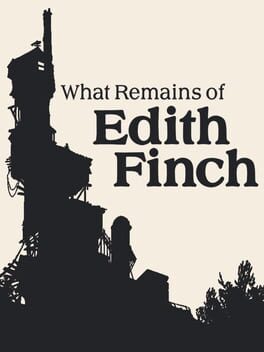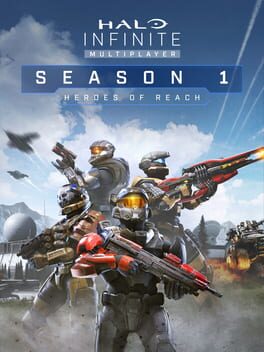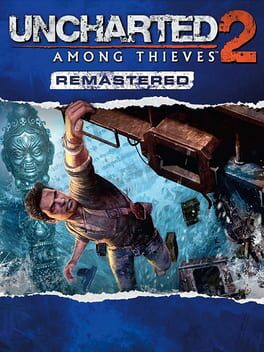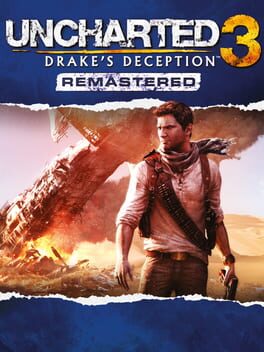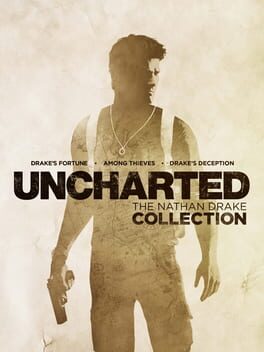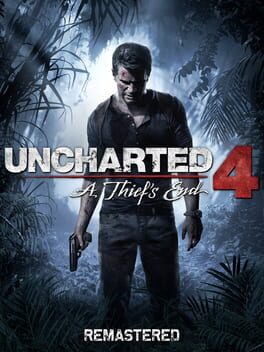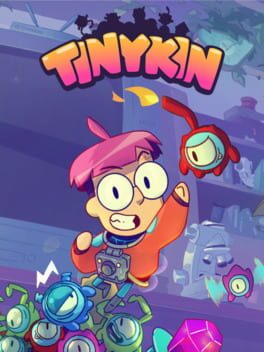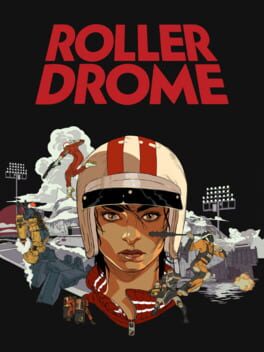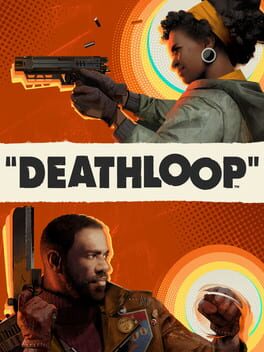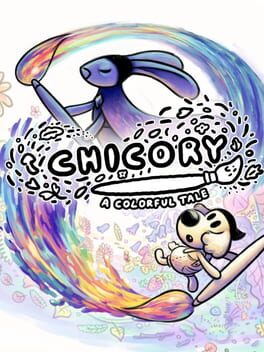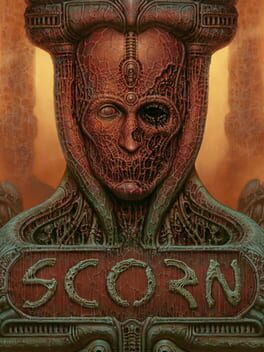ARW3
BACKER
2021
2021
Best-feeling Halo title since Halo 3. Mechanics are sound and the game launched balanced. Campaign is a complete experience, although launching without co-op hurt the experience. Similarly, multiplayer suffers from a lack of Forge at launch. As far as a foundation goes for a game with a planned long-lifespan, Infinite is strong and I anticipate playing for years to come.
A solid foundation, with the most mechanically sound Halo of all time. Needs way more content in the way of maps, forge, custom game features, QoL, customization, playlists and game modes. Launched with excessively greedy monetization, although no MTX gave competitive edges. This has the potential to be my favorite MP game of all time, but much work needs to be done.
Platinum #11. Fantastic outing to conclude the PS3 era of Nathan Drake's adventures. Did not quite have the impact for me that Uncharted 2 had, but it was still a great globetrotting romp. Forced melee combat and button mashing prompts are both to the game's 'fun factor' detriment. They takes away focus from much improved 3rd person shooting mechanics. For its time of original release in Nov. 2011, Uncharted 3 once again continued the series' tradition of exceeding expectations in visual presentation and environmental diversity.
A fantastic collection of remasters, with a few extra bells & whistles, bringing forward the PS3 entries for Nathan Drake to the PS4-5. These are mostly appreciated, but I do not think these games were balanced to allow for the new 'Brutal' difficulty setting, which is probably more unfair than it is 'fun.' Collects two truly exceptional games, as well as the title that jumpstarted this beloved franchise. BluePoint simply seems to never miss.
Competes w/ Uncharted 2 as the best in the series. This delivered a compelling story from beginning to end, providing a satisfying end to Nathan Drake's tetralogy. It does a wonderful job of calling back to and referencing Drake's previous ventures. 60+ fps makes the experience super smooth, making up for combat that is improved compared to its predecessors, but still a bit finicky in nature.
2022
Beautifully crafted title. If you enjoy "collectathon" platformers like Psychonauts, this is that with the aesthetic kin to a Bug Fables or Paper Mario... and with core gameplay largely taking inspiration from Pikmin, minus the combat. Tinykin takes a lot of familiar ideas and blends them into a unique and lovable experience that won't demand too much of your time
2022
2021
"DEATHLOOP" is a unique experience built on a wonderfully weird sandbox crafted by Arkane Lyon. The game is linear in nature, but encourages player exploration and exploitation of the many sandbox goodies provided to accomplish an established set of goals. The progression of one's personal familiarity as well as their loot or abilities is satisfying throughout. The "loop" does struggle with some repetitiveness, especially compounded by at-times confusing puzzles or the lack of enemy variety. The repetitive levels are a double-edged sword, in that my familiarity with them actually did lead to genuine enjoyment as I began to master and optimize my routes.
The game is aesthetically top-notch. Quintessential Arkane art direction was on full-display on the island of Blackreef, forgoing AAA hyper-realism in favor of depicting a flamboyant and variegated dystopia. Music and sound both worked to further sell Blackreef's 1960s setting. The OST for the game was solid, with the few songs featuring lyrics also being enjoyable when they appeared in game. Audio queues were often incredibly helpful when engaging with the game's stealth mechanics, but the footstep audio was all over the place in its consistency. One item that was improved in comparison to previous Arkane games was technical performance - the game felt smooth in performance mode and I did not appreciate any notable hiccups. My bugs were minimal, and mostly were associated with the already obtuse UI between missions. I did have one crash in my 33.5 hours with DEATHLOOP (played entirely on my Xbox Series X).
Ultimately, I really enjoyed my time with DEATHLOOP. I continue to believe the folks at both the main Arkane Studios are wicked talented. I loved seeing them adapt some of their unique gameplay mechanics from the Dishonored series into a completely different setting. The abilities in this game are fun and satisfying to wreak havoc (pun-intended) with on the undying Eternalists of Blackreef. The world is weird, wacky, and inundated with many secrets that serve both player intrigue as well as provide practical tools to "end the loop." The game is fairly forgiving, with abundant access to permanent loot preservation early on, so I always felt encouraged go thoroughly explore the many corners of Blackreef. Juliana and Colt's bickering dialogue can be at times exhausting, but I overall enjoyed the zaniness of the game's cast. The game could do with a little more consolidation in its mission structure, as I imagine certain threads in the narrative might be perceived as repetitive or unnecessarily fragmented. Both the menus’ busy UI and the title's aggressive explanation of gameplay mechanics (essentially a prolonged tutorial) will also be to the distaste of some players. Lastly, the scope of this game might feel limited to folks who were big fans of some of Arkane's previous works. DEATHLOOP felt less concerned with providing consistent choice/consequence or branching narratives that evolved based off player behavior (as compared to 2017's "Prey" or the Dishonored series). DEATHLOOP is probably not the game for people looking for an experience that provides player agency to influence the bulk of its narrative.
I will also add that this is a great game for achievement and trophy hunters, with an interesting list that encourages player engagement with the game's many sandbox and narrative offerings. Nothing is missable, and I experienced only one glitched achievement in my play-through that resolved with a replay of the short 5-10min level.
The game is aesthetically top-notch. Quintessential Arkane art direction was on full-display on the island of Blackreef, forgoing AAA hyper-realism in favor of depicting a flamboyant and variegated dystopia. Music and sound both worked to further sell Blackreef's 1960s setting. The OST for the game was solid, with the few songs featuring lyrics also being enjoyable when they appeared in game. Audio queues were often incredibly helpful when engaging with the game's stealth mechanics, but the footstep audio was all over the place in its consistency. One item that was improved in comparison to previous Arkane games was technical performance - the game felt smooth in performance mode and I did not appreciate any notable hiccups. My bugs were minimal, and mostly were associated with the already obtuse UI between missions. I did have one crash in my 33.5 hours with DEATHLOOP (played entirely on my Xbox Series X).
Ultimately, I really enjoyed my time with DEATHLOOP. I continue to believe the folks at both the main Arkane Studios are wicked talented. I loved seeing them adapt some of their unique gameplay mechanics from the Dishonored series into a completely different setting. The abilities in this game are fun and satisfying to wreak havoc (pun-intended) with on the undying Eternalists of Blackreef. The world is weird, wacky, and inundated with many secrets that serve both player intrigue as well as provide practical tools to "end the loop." The game is fairly forgiving, with abundant access to permanent loot preservation early on, so I always felt encouraged go thoroughly explore the many corners of Blackreef. Juliana and Colt's bickering dialogue can be at times exhausting, but I overall enjoyed the zaniness of the game's cast. The game could do with a little more consolidation in its mission structure, as I imagine certain threads in the narrative might be perceived as repetitive or unnecessarily fragmented. Both the menus’ busy UI and the title's aggressive explanation of gameplay mechanics (essentially a prolonged tutorial) will also be to the distaste of some players. Lastly, the scope of this game might feel limited to folks who were big fans of some of Arkane's previous works. DEATHLOOP felt less concerned with providing consistent choice/consequence or branching narratives that evolved based off player behavior (as compared to 2017's "Prey" or the Dishonored series). DEATHLOOP is probably not the game for people looking for an experience that provides player agency to influence the bulk of its narrative.
I will also add that this is a great game for achievement and trophy hunters, with an interesting list that encourages player engagement with the game's many sandbox and narrative offerings. Nothing is missable, and I experienced only one glitched achievement in my play-through that resolved with a replay of the short 5-10min level.
"Chicory: A Colorful Tale" is an exceedingly cute, unique game. The central narrative is appropriately brief and charming. Painting mechanics, core to this title, give way to a fairly unique gameplay experience. The general art-direction is delightful and the game is littered with quirky characters. Puzzles are fair and the "combat" is not particularly challenging, with plenty of accessibility options to boot. Chicory is an easy recommend for folks seeking out a neat indie title, but it is a harder recommendation for folks who like combat-focused games or trophy hunting. Some of the collectathon aspects of Chicory can be frustrating, given how some items are counterintuitively hidden-in-plain-sight and others are reliant on NPCs with some RNG'd locations. Overall, Chicory is a chill, heartwarming game that is worth checking out!
2022
Scorn is an unsettling outing into a dystopian alien society where the player is tasked with navigating various puzzles. Although no clear goal is spelled-out for the player, your task seemingly demands you escape the ancient structures from which you awaken.
Make no mistake, the chief appeal and greatest accomplishments of this title are found in its unique art direction. Scorn's grotesque presentation serves as an explicit ode to the works of H.R. Giger and surrealist artist Zdzisław Beksiński. The humanoid alien society in which Scorn takes place clearly draws from both their works. The parasitic plant depicted in Beksiński's 1978 "AA78" is personified by the eerie overgrowth the player must navigate as they physically descend Scorn's world. Further still, desolate landscapes and gothic cathedral-like edifices serve to evoke his many apocalyptic oil paintings. Society in Scorn appears revolved around the cyclical production and conclusion of life. Players will note the architecture they manipulate to progress will symbolically nod to the mechanical way by which society reproduced in the world of Scorn. Its biophysical and highly sexual undertones assuredly pull from H.R. Giger's various works. I imagine most players will at least have some familiarity with the original "Alien" films, and their influence on Scorn is readily observable. The macabre environmental design in Scorn serves it well in depicting its staggering, intriguingly vague story. Scorn has many touchstones: the cycle of life, maternalism, the burdens an individual bears for their society or the means by which a civilization might fight its own extinction.
While art direction is certainly the star here, justifying Scorn's existence in its own right, the rest of the experience garners more mixed feelings for me. The audio design was good and helped to promote a foreboding atmosphere. Of-course there are moments of gore with some particularly uncomfortable sounds and images for those who are even remotely squeamish. Puzzle design is overall pretty fine, with most individual puzzles demand some thought without being particularly obtuse. Homogenous, albeit engrossing, environmental design will be disorienting for most players when solving puzzles that demand them to cover some distance. This is made worse in Acts III-IV, where players must first engage with Scorn's combat in a meaningful way.
Initially, combat in Scorn is pretty dreadful. The limited types of enemies all encourage some "gamey" or "cheesy" actions of the player if they wish to avoid an exceedingly punishing death. In the earlier goings most enemies in Scorn are felled primarily by utilizing corners or structures as 'cover' while zig-zagging towards them to deploy an underpowered melee attack. Eventually, the player earns two more weapons that are more efficacious, but with severely limited ammunition. These weapons, as well as one endgame weapon, actually boast pretty rad designs (I'll also add that reloading is slow... but cool to look at). I actually found it somewhat rewarding and tense to manage the ammo for these weapons. You have an additional puzzle of making strategical decisions to skip combat encounters or engage, as one might do in a survival-horror game. However, this is ultimately a slight on the game, not a strength. The uncertainty governing combat management is made tedious by an unforgiving checkpoint system (and nonexistent save system). I only died twice in my Scorn play-through (once in Act III, once in Act V), but this was through excessively cautious, lucky play and not because of any particular 'skill.' I have heard of others losing an hour+ of progress, but in my experience the checkpoints I reached (although not manually loadable) generally only set me back 30s-5min prior to my deaths. I respect Scorn's unapologetic commitment to itself as a first-person, disturbing puzzle game in 3/5ths of its "Acts." However, I do think the game loses its identity a bit in acts III-IV, where the game becomes burdened with poorly implemented combat.
It is worth noting that Scorn was initially reported to have quite a few bugs, however I experienced none during my play-through on the Xbox Series X (~6 hours of gametime). Sometimes enemies clipped through the environment, but I did not encounter any progress-halting bugs nor other glitches. I am unsure if the day one console patch (~3gb) resolved many of the issues media outlets experienced, or if I just got lucky. Although I did not experience any bugs or crashes, this does not undermine the experiences others had. The topic of these bugs/glitches is just one I cannot comment on further, based off my personal time with the game.
Overall, I am inclined to recommend Scorn to those who understand just what this game is and accept the caveat that the compelling journey it takes you on is not one that will intermix much in the way of traditional action-focused gameplay. It could do with a few QoL adjustments, particularly in melee damage and a save feature. Scorn is not a survival-horror game, nor is it a pure walking simulator or no-combat puzzle game. Its agglomerative nature is probably to its detriment, but within its flaws exists a wholly unique experience. Scorn's artists/designers made good use of Unreal Engine 5, it would seem, as the visual impact this game has is profound. It is easy to recommend this game on those grounds alone. This is Ebb Software's debut title, and I am excited to see what they will produce in the future! Not many developers can produce such a fascinating, unique and well-realized world in their first outing. This team operates out of Serbia, and represent part of the explosion of GameDev talent we are seeing in Eastern Europe at the time of my writing... Teams like Ebb Software, SadCat, 4A Games (who have relocated to Malta, but originated in Kiev), GSC Game World, and Mundfish are all worth keeping an eye on in the years to come.
It is hard for me to put a number score on Scorn, and truth-be-told it personally lands for me somewhere between the ★★★½ " Good" and ★★★★ "Great" marks.
Make no mistake, the chief appeal and greatest accomplishments of this title are found in its unique art direction. Scorn's grotesque presentation serves as an explicit ode to the works of H.R. Giger and surrealist artist Zdzisław Beksiński. The humanoid alien society in which Scorn takes place clearly draws from both their works. The parasitic plant depicted in Beksiński's 1978 "AA78" is personified by the eerie overgrowth the player must navigate as they physically descend Scorn's world. Further still, desolate landscapes and gothic cathedral-like edifices serve to evoke his many apocalyptic oil paintings. Society in Scorn appears revolved around the cyclical production and conclusion of life. Players will note the architecture they manipulate to progress will symbolically nod to the mechanical way by which society reproduced in the world of Scorn. Its biophysical and highly sexual undertones assuredly pull from H.R. Giger's various works. I imagine most players will at least have some familiarity with the original "Alien" films, and their influence on Scorn is readily observable. The macabre environmental design in Scorn serves it well in depicting its staggering, intriguingly vague story. Scorn has many touchstones: the cycle of life, maternalism, the burdens an individual bears for their society or the means by which a civilization might fight its own extinction.
While art direction is certainly the star here, justifying Scorn's existence in its own right, the rest of the experience garners more mixed feelings for me. The audio design was good and helped to promote a foreboding atmosphere. Of-course there are moments of gore with some particularly uncomfortable sounds and images for those who are even remotely squeamish. Puzzle design is overall pretty fine, with most individual puzzles demand some thought without being particularly obtuse. Homogenous, albeit engrossing, environmental design will be disorienting for most players when solving puzzles that demand them to cover some distance. This is made worse in Acts III-IV, where players must first engage with Scorn's combat in a meaningful way.
Initially, combat in Scorn is pretty dreadful. The limited types of enemies all encourage some "gamey" or "cheesy" actions of the player if they wish to avoid an exceedingly punishing death. In the earlier goings most enemies in Scorn are felled primarily by utilizing corners or structures as 'cover' while zig-zagging towards them to deploy an underpowered melee attack. Eventually, the player earns two more weapons that are more efficacious, but with severely limited ammunition. These weapons, as well as one endgame weapon, actually boast pretty rad designs (I'll also add that reloading is slow... but cool to look at). I actually found it somewhat rewarding and tense to manage the ammo for these weapons. You have an additional puzzle of making strategical decisions to skip combat encounters or engage, as one might do in a survival-horror game. However, this is ultimately a slight on the game, not a strength. The uncertainty governing combat management is made tedious by an unforgiving checkpoint system (and nonexistent save system). I only died twice in my Scorn play-through (once in Act III, once in Act V), but this was through excessively cautious, lucky play and not because of any particular 'skill.' I have heard of others losing an hour+ of progress, but in my experience the checkpoints I reached (although not manually loadable) generally only set me back 30s-5min prior to my deaths. I respect Scorn's unapologetic commitment to itself as a first-person, disturbing puzzle game in 3/5ths of its "Acts." However, I do think the game loses its identity a bit in acts III-IV, where the game becomes burdened with poorly implemented combat.
It is worth noting that Scorn was initially reported to have quite a few bugs, however I experienced none during my play-through on the Xbox Series X (~6 hours of gametime). Sometimes enemies clipped through the environment, but I did not encounter any progress-halting bugs nor other glitches. I am unsure if the day one console patch (~3gb) resolved many of the issues media outlets experienced, or if I just got lucky. Although I did not experience any bugs or crashes, this does not undermine the experiences others had. The topic of these bugs/glitches is just one I cannot comment on further, based off my personal time with the game.
Overall, I am inclined to recommend Scorn to those who understand just what this game is and accept the caveat that the compelling journey it takes you on is not one that will intermix much in the way of traditional action-focused gameplay. It could do with a few QoL adjustments, particularly in melee damage and a save feature. Scorn is not a survival-horror game, nor is it a pure walking simulator or no-combat puzzle game. Its agglomerative nature is probably to its detriment, but within its flaws exists a wholly unique experience. Scorn's artists/designers made good use of Unreal Engine 5, it would seem, as the visual impact this game has is profound. It is easy to recommend this game on those grounds alone. This is Ebb Software's debut title, and I am excited to see what they will produce in the future! Not many developers can produce such a fascinating, unique and well-realized world in their first outing. This team operates out of Serbia, and represent part of the explosion of GameDev talent we are seeing in Eastern Europe at the time of my writing... Teams like Ebb Software, SadCat, 4A Games (who have relocated to Malta, but originated in Kiev), GSC Game World, and Mundfish are all worth keeping an eye on in the years to come.
It is hard for me to put a number score on Scorn, and truth-be-told it personally lands for me somewhere between the ★★★½ " Good" and ★★★★ "Great" marks.
